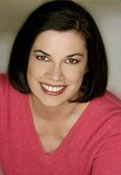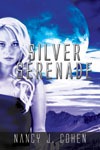By Joe Moore
When I first started attempting to write fiction many years ago, I subscribed to and devoured all the writer’s magazines out there. Writers Digest, Writer, and many more. I read every article, sometimes multiple times, and I would use a yellow highlighter to mark those pearls of wisdom from the experienced  authors on how to be a better writer. Over the years, I accumulated large piles of magazines containing many yellow highlights. When the day came to clean out my closet and give the copies away to some of my writer friends, I first sat down and went through every edition, copying those jewels of advice into one complete list. Today, I will share them all with you. Maybe you might not agree with them all, but there’s a wealth of advice from countless bestsellers that can help improve anyone’s efforts at being a better author.
authors on how to be a better writer. Over the years, I accumulated large piles of magazines containing many yellow highlights. When the day came to clean out my closet and give the copies away to some of my writer friends, I first sat down and went through every edition, copying those jewels of advice into one complete list. Today, I will share them all with you. Maybe you might not agree with them all, but there’s a wealth of advice from countless bestsellers that can help improve anyone’s efforts at being a better author.
And if you’re wondering why this blog post is called Blind Baby Raised by Worms, check writing tip number 35. It’s the only one I personally contributed. Enjoy.
1. Easy writing makes hard reading, but hard writing makes easy reading.
2. Surprise creates suspense.
3. Vulnerability humanizes a character.
4. Anything that does not advance the plot or build character should be deleted.
5. Their reaction to a situation shows a great deal about your characters.
6. What your characters say and do under stress reveals their true feelings.
7. Coincidence is used effectively when it sets up a plot complication instead of a resolution.
8. Use all the senses to build your setting.
9. You are not accountable for the absolute accuracy or completeness of your factual information as long as it’s plausible. Write so it sounds right.
10. You can build characterization by seeing your character from another’s viewpoint.
11. The reader doesn’t know how a story will resolve, but they should have no doubt what must be resolved.
12. As a story grows, so should the obstacles.
13. Any word that can be substituted by a simpler word should be.
14. Suspense is created by having something extraordinary happen in an ordinary situation.
15. The simile includes the quality that is being compared as well as the comparison. The metaphor’s comparative frame of reference is only alluded to in the image used.
16. There must always be conflict in some form to keep the story interesting.
17. Deleting “very” usually strengthens a sentence or phrase.
18. Your story must interest you. If it does, there’s a good chance it will interest someone else.
19. Credible prose is not self-indulgent; it exists to illuminate the story, not to show off how clever the writer can be.
20. If you cannot describe your story in one or two sentences, you’re in trouble.
21. Rather than describing your characters, come up with actions that show what they’re like.
22. One way to decide if sex in a scene is necessary is simply to delete it.
23. If it comes easy, it’s a cliché.
24. Don’t give your characters names that are similar, start with the same letter, or are hard to pronounce.
25. A cliché is a sign of a mind at rest.
26. Think of your settings as a character.
27. The reader must feel that your characters were alive before the story began and will live on after it ends.
28. Begin the story where the reader will anticipate what happens next but is compelled to guess wrong.
29. A commercial novel is one that a lot of people buy, finish reading and tell others to read it.
30. The average reader must be considered a genius with the attention span of a two-year-old.
31. To get an editor’s attention, you have about three paragraphs in a short story and three pages in a novel.
32. Conflict, the basis of all good writing, arises because something is not going as planned.
33. Villains never think of themselves as “bad guys”.
34. Always start with the character, not the plot. The needs of the character will drive the plot.
35. Always use a cheap tabloid-style blog title to grab attention.
**********
“Sholes and Moore have been writing stellar thrillers that use religious themes for some time, and their fifth effort, the first to feature Seneca Hunt, is their best yet.” – Booklist
THE PHOENIX APOSTLES, in stores June 8. Available online now at Amazon or B&N!




 Nancy J. Cohen
Nancy J. Cohen